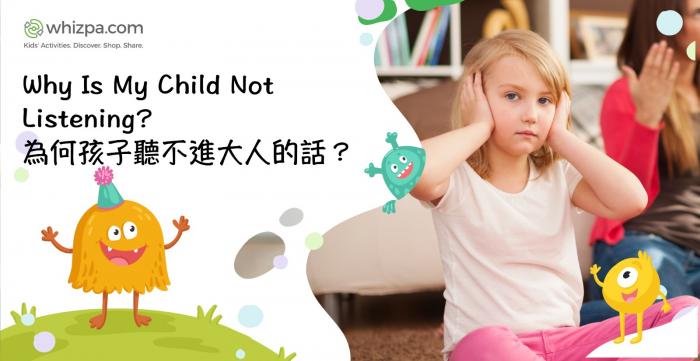
Why Is My Child Not Listening?
Parenting has never been easy; getting a child to listen is sometimes exhausting. Parents always wonder why they cannot get their children to listen no matter how often they say the same thing. For example, when the weather is cold, the mother usually reminds her child to put on more clothes, but the child refuses or ignores it and ends up getting sick. Parents may think they are doing what is best for their children and that what they say is out of concern, but the children's response is usually different from what they expect. Let us see what parents can do to get their children to listen and stop this frustration.
Choose the right time to talk
Timing is the key. When a child does not perform well at school, he first needs support and understanding, not criticism. He may not feel like talking in the first place. However, it is the common practice for some parents to criticise and offer advice immediately after seeing the report card, saying, "If you studied more and played less, things would be different...". The child will automatically turn a deaf ear to the lecture because he is still in a bad mood. Instead, try another way of speaking, such as, "I understand that you may feel upset about your grades. Do you want to talk?" This helps alleviate the child's negative emotions and makes him more receptive to suggestions afterwards. Suppose the child agrees to communicate further at that moment, parents can continue by asking, "Why don't we plan it together and see how we can improve next time?". Therefore, choosing the right time and showing more concern works better in getting the child to listen. In addition, try not to talk while the child is fully engrossed in playing or doing something. He may find it disturbing or fail to pay attention to your words. As we can imagine, no one likes being disturbed when they are busy.
Use an appropriate tone of voice
Another direction to consider with a disobedient child is speaking positively rather than being too preachy or authoritative. Parents may think they have the right to dictate and do what is best for their children. However, this is not what children, especially teenagers appreciate. Statements such as "Go and do your homework now", "You are not allowed to watch TV", or "Stop watching" can make a child feel uncomfortable and overwhelmed and, worst of all, lead to aggressive behaviour. Parents could be more mindful of the tone and wording of their instructions. For instance, "It is not dinner time yet. Why don't you do your homework first" or "Watching too much TV is harmful to your eyes, why don't you go out and play football". Speaking in a gentle tone will make a child feel respected and empowered to control his own life. Consequently, he will be more willing to listen when the parents have something important to say. To avoid conflicts, parents should respect their child as an individual who has the freedom to decide on his time management, work prioritisation, and whether to take our advice. In addition, speaking around them is more effective than shouting at them from across the room.
Keep instructions short and precise
Children and teenagers are good at ignoring what their parents say, so always avoid nagging since that is ineffective and will cause frustration to both parents and children. With this in mind, parents should use simple language and short and precise instructions and leave the children to determine what they will do. Nevertheless, we need to set reasonable boundaries and provide guidelines as to what extent they can make their own decisions.
Reward and praise for good behaviour
Incentives play a vital role in motivating children to behave well, and compliments will undoubtedly create positive energy between parents and children. If a young child tidies up the place as soon as you ask, giving them a simple reward such as a sticker or complimenting them is a proven strategy for reinforcing proper behaviour and helps boost a good feeling. As a result, the child is more likely to cooperate and listen to you next time so as to get the same positive emotion again.
Try to follow the suggestions above, and you may find that your child will enjoy behaving well for you. For Further reading, please download our eBook 7 Secrets to Smart Parenting or 7 Most Common Parenting Mistakes to Avoid.








